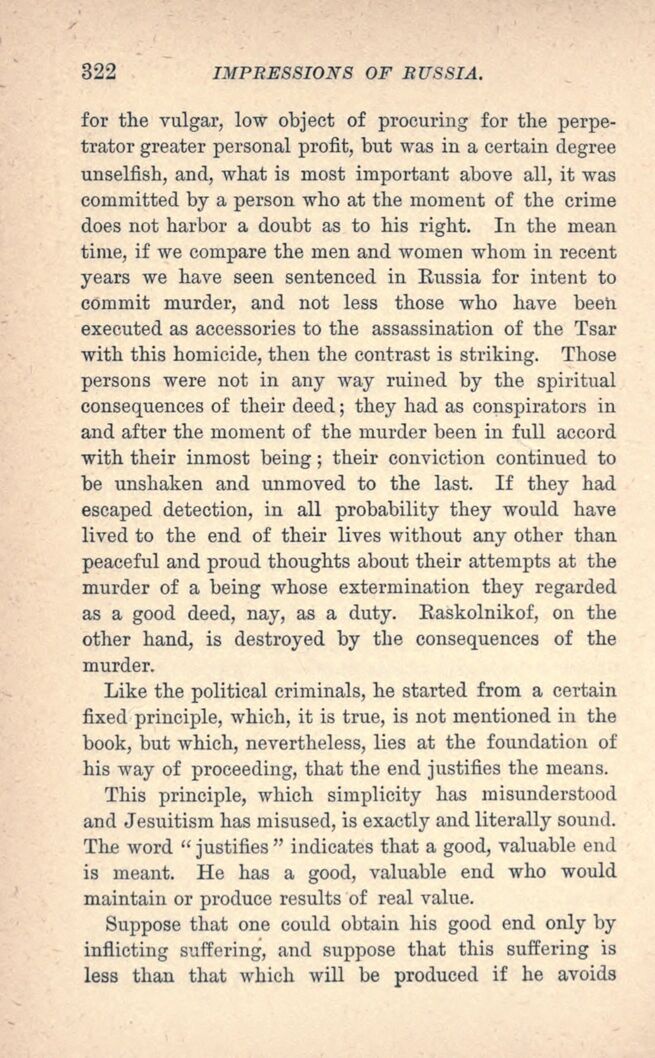
Full resolution (JPEG) - On this page / på denna sida - Impressions of Russian Literature - VI

<< prev. page << föreg. sida << >> nästa sida >> next page >>
Below is the raw OCR text
from the above scanned image.
Do you see an error? Proofread the page now!
Här nedan syns maskintolkade texten från faksimilbilden ovan.
Ser du något fel? Korrekturläs sidan nu!
This page has been proofread at least once.
(diff)
(history)
Denna sida har korrekturlästs minst en gång.
(skillnad)
(historik)
for the vulgar, low object of procuring for the perpetrator
greater personal profit, but was in a certain degree
unselfish, and, what is most important above all, it was
committed by a person who at the moment of the crime
does not harbor a doubt as to his right. In the mean
time, if we compare the men and women whom in recent
years we have seen sentenced in Russia for intent to
commit murder, and not less those who have been
executed as accessories to the assassination of the Tsar
with this homicide, then the contrast is striking. Those
persons were not in any way ruined by the spiritual
consequences of their deed; they had as conspirators in
and after the moment of the murder been in full accord
with their inmost being; their conviction continued to
be unshaken and unmoved to the last. If they had
escaped detection, in all probability they would have
lived to the end of their lives without any other than
peaceful and proud thoughts about their attempts at the
murder of a being whose extermination they regarded
as a good deed, nay, as a duty. Raskolnikof, on the
other hand, is destroyed by the consequences of the
murder.
Like the political criminals, he started from a certain
fixed principle, which, it is true, is not mentioned in the
book, but which, nevertheless, lies at the foundation of
his way of proceeding, that the end justifies the means.
This principle, which simplicity has misunderstood
and Jesuitism has misused, is exactly and literally sound.
The word “justifies” indicates that a good, valuable end
is meant. He has a good, valuable end who would
maintain or produce results of real value.
Suppose that one could obtain his good end only by
inflicting suffering, and suppose that this suffering is
less than that which will be produced if he avoids
<< prev. page << föreg. sida << >> nästa sida >> next page >>